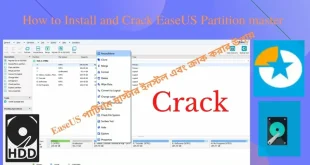Women empowerment organizations are the backbone of the global movement for gender equality. These organizations work tirelessly to break down barriers, create opportunities, and amplify the voices of women around the world. Their efforts encompass a wide range of issues, from economic empowerment and education to political participation and ending violence against women at Women Empowerment Organizations.
Women Empowerment Organizations Key Points:
- Diversity of Focus: Women empowerment organizations address a vast array of challenges faced by women, tailoring their programs to specific needs and contexts.
- Global Reach: From grassroots initiatives to international agencies, these organizations operate across geographical boundaries, fostering collaboration and knowledge sharing.
- Strategies for Impact: They employ a multifaceted approach, including advocacy, education, training, microfinance, legal aid, and building social support networks.
- Measuring Success: The impact of these organizations is measured by improved life outcomes for women, such as increased income, educational attainment, political participation, and a reduction in violence.
Types of Women Empowerment Organizations:
- International Organizations: These organizations have a global reach and work on a wide range of women’s issues. Examples include:
- UN Women: UN Women is committed to advancing gender equality and empowering women and girls worldwide, envisioning a world where every woman and girl can flourish.
- Global Fund for Women: Supporting women-led organizations that aim to revolutionize the lives of women and girls through funding.
- Women for Women International: Provides women survivors of war with the tools and resources they need to rebuild their lives.
- National and Regional Organizations: These organizations concentrate on addressing women’s issues within particular countries or regions. Examples include:
- SEWA (Self Employed Women’s Association) – India: Represents the interests of low-income, informal women workers.
- CAMFED (Campaign for Female Education) – Africa: Works to eradicate poverty in Africa through girls’ education.
- The Asia Foundation: Promotes women’s empowerment across Asia through programs in education, economic development, and governance.
- Grassroots Organizations: These local organizations work directly with women in their communities to address specific needs. They often play a crucial role in mobilizing women and raising awareness of local issues.
Strategies for Women Empowerment Organizations:
- Advocacy: Raising awareness, lobbying governments, and influencing policy change to promote gender equality.
- Education and Training: Equipping women with the skills and knowledge they need to succeed in education, employment, and leadership roles.
- Economic Empowerment:
Offering women access to financial resources, microfinance opportunities, and programs for skills development. - Legal Aid: Offering legal aid and support to women facing violence, discrimination, or other injustices.
- Building Social Support Networks: Creating safe spaces for women to connect, share experiences, and build solidarity with one another.
Impact of Women Empowerment Organizations:
- Economic Growth: Research indicates that achieving gender equality and empowering women are crucial catalysts for economic growth and development.
- Peace and Security: When women are empowered, they play a more active role in peacebuilding and conflict resolution.
- Health and Education: Access to education and healthcare for women not only benefits them individually but also has positive effects on their families and communities.
Challenges Faced by Women Empowerment Organizations:
- Funding: Many organizations continually face the challenge of securing sustainable funding.
- Political Will: A deficiency in political will and resistance to change can impede progress on gender equality.
- Cultural Norms: Persistent cultural norms deeply ingrained in society can pose a significant barrier to achieving lasting change in gender equality.
How You Can Get Involved:
- Donate: Contribute financially to support the work of women’s empowerment organizations.
- Volunteer: Offer your time, skills, and expertise to a local women’s organization.
- Raise Awareness: Spread the word about women’s empowerment issues and the work of these organizations.
- Advocate: Lobby your government officials and policymakers to support policies that promote gender equality.
FAQs:
- What is the difference between feminism and women’s empowerment?
Feminism is a broad ideology that calls for political, economic, and social equality between the sexes. Women’s empowerment organizations put these ideas into action by working on specific issues that affect women’s lives.
- How can I find a women’s empowerment organization to support?
Many online resources can help you find women’s empowerment organizations in your area or work on issues you care about. You can also search for organizations on social media platforms.
- What skills are most in demand by women’s empowerment organizations?
The skill requirements for women’s empowerment organizations vary depending on their focus and activities. Nonetheless, sought-after skills often include fundraising, grant writing, project management, communication, and advocacy.
Conclusion:
Women empowerment organizations are dynamic entities constantly adapting to address the evolving needs of women around the world. Their work is critical for achieving gender equality and building a more just and equitable future for all.
As technology and societal issues evolve, these organizations will undoubtedly devise new and innovative strategies to empower women and catalyze transformation their lives.
 Daily Blogger News Stay updated with the latest trends and insights. Your reliable source for daily updates and information.
Daily Blogger News Stay updated with the latest trends and insights. Your reliable source for daily updates and information.







